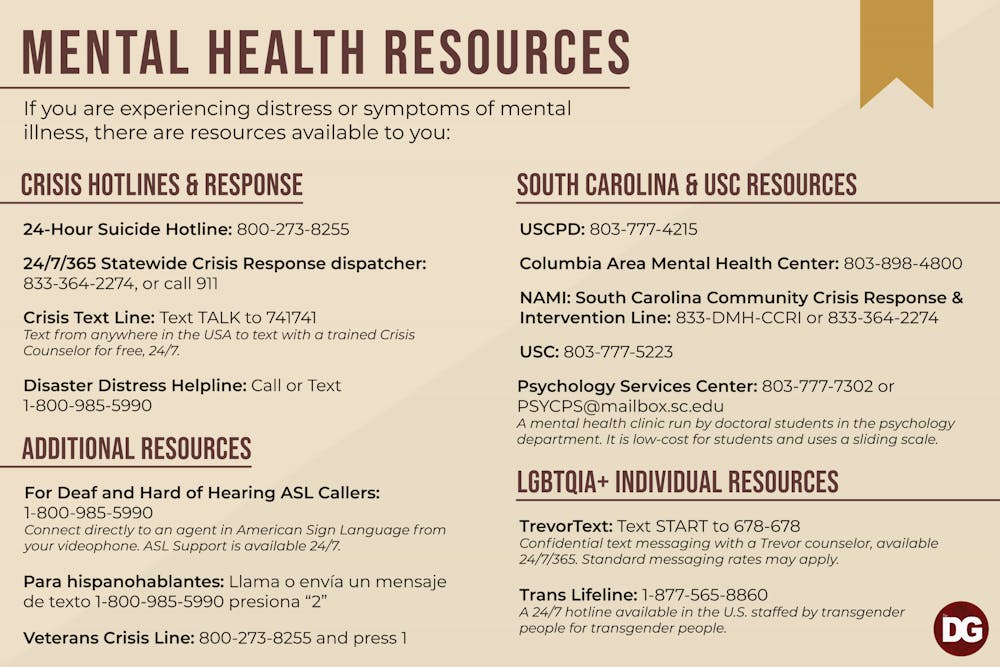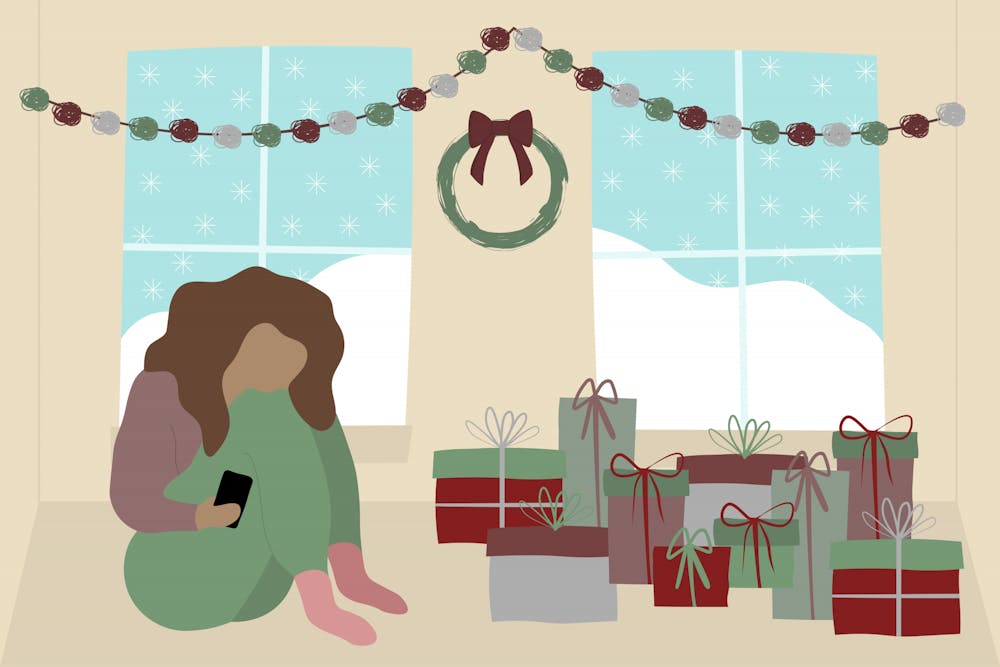Neighborhood drives through an endless sea of Christmas lights. Grandma’s classic pumpkin pie. Snuggling your pet by the fireplace, hot cocoa in hand. It’s the most wonderful time of the year … right?
Behind the curtain of excitement that accompanies the holiday season, there’s an often unnoticed population of individuals who experience great loneliness. In a survey conducted of more than 2,000 Americans last year, it was reported that seven in 10 people experienced feelings of loneliness surrounding the holiday season.
There are countless reasons why people might feel this way around the holidays, but many are connected to one unlikely suspect: social media.
Social media has transgressed from a platform of connection to an arena of competition. In her TED Talk titled “The Culture of Comparison,” therapist Bea Arthur explains how “happiness becomes a moving target.”
Being happy with your own accomplishments is extremely difficult when you’re constantly comparing them to others' decisions. Once we convince ourselves that someone is one step ahead of us, we immediately feel the need to catch up.
Arthur said this culture of comparison causes individuals to grade choices based on the choices of other people. This mindset creates an endless cycle of chasing happiness because there will always be someone who seems like they have it all together.
During the holiday season, comparison culture can become particularly evident on social media. Whether someone is vacationing at your dream location or seeing family when you’re unable to visit home, there’s a lot to miss out on.
In the survey mentioned earlier, 51% of Americans blamed the pandemic for physical isolation struggles that contributed to their feelings of holiday loneliness.
Geographical separation from loved ones can take a real toll on mental wellbeing. Social media only heightens these negative feelings when you come across a happy family wearing matching pajamas.
Even for students who are fortunate enough to see family for the holidays, they might experience loneliness in other ways. Whether they’re grieving a lost loved one or suffering separation anxiety from close friends at school, social media has the power to quickly transform these feelings into a combination of depression and jealousy. That’s simply not the reason for the season.
Alongside the excitement to see family, the holiday season carries a great deal of anticipation around material things. Children are encouraged to send letters to Santa with a list of toys they want for Christmas and families exchange gifts for the eight nights of Hanukkah. The tradition of gift giving is essential to the culture of the holiday season, but social media has blown our expectations out of proportion.
A TikTok trend around this time of year is to post “Christmas List Idea” videos. The intention of these videos is to give others inspiration for what to put on their own lists. The issue with this trend is that people of many different financial backgrounds participate in it, including families who can afford countless designer items.
When the expectation for expensive gifts is introduced, it’s hard to be happy with TJ Maxx heels while your feed is filled with people who unwrapped Red Bottoms.
With the weather getting colder and Thanksgiving around the corner, there’s another season approaching: cuffing season.
This is the time of year when people panic to find a partner to hibernate with for the winter. At first glance, having a partner for the holidays seems like a reasonable way to combat loneliness. And while that’s temporarily true, there’s a deeper danger behind the idea of “cuffing season.”
As college students, we’re entering a phase in our lives in which there’s pressure for close partnership. April Scott, associate director of Mental Health Initiatives at USC, explains, “from a developmental psychology perspective, this is when people are starting to pair off.” With the natural pressure of starting our early 20s and considering serious relationships, we don’t need additional stress of the Twitter-viral “cuffing season schedule.”
Social media possesses great power to push unrealistic standards, such as cuffing season, to the point of no return. When life doesn’t measure up to everyone else’s, people can feel estranged, unworthy and unloved.
If you struggle with your mental health around the holidays, think about replacing time spent on social media with an outdoor walk or a phone call with a close friend, which can help combat feelings of loneliness. At the very least, consider unfollowing accounts that have you chasing after intangible happiness.
Our university offers a variety of mental health services for all students, faculty and staff. Visit www.sc.edu/mentalhealth to schedule a visit with a professional counselor or participate in an online therapy program.


